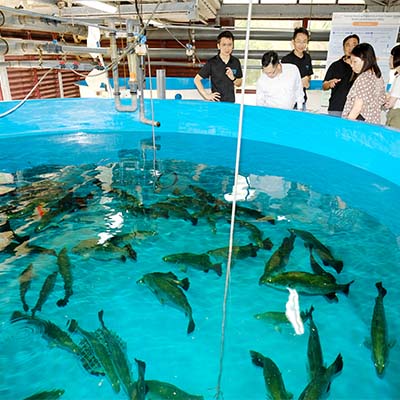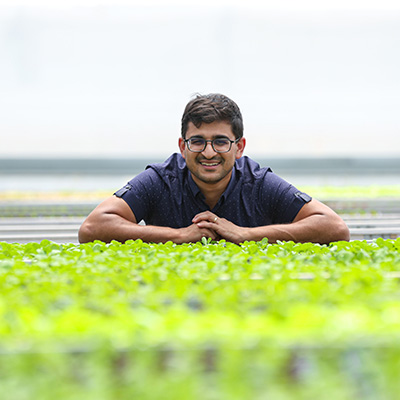Singapore is beefing up its expertise in the novel food sector, with Nanyang Technological University (NTU) rolling out a new undergraduate course that will focus on meat alternatives, The Straits Times has learnt.
About 30 students from the university’s food science and technology programme are expected to enrol in the course, Future Foods – Introduction to Advanced Meat Alternatives, when the academic year opens in August.
Depending on the level of interest, the university will consider opening up the course to more students in other degree programmes, said Professor William Chen, director of NTU’s food science and technology programme.
He is coordinating the course in collaboration with The Good Food Institute (GFI), an international non-profit organisation that promotes alternatives to conventional meat products.
Such alternatives include plantbased proteins, such as Impossible’s plant-based beef products, or cultivated meat, made from culturing animal cells in a bioreactor.
This culture process, which entails retrieving animal cells through methods such as biopsies, and then multiplying them in bioreactors, avoids having to slaughter animals for meat.
Tissue engineering can then be conducted on these cultured cells so the final product more closely resembles cuts of meat such as steak or pork chops.
Prof Chen, who is a consultant to the Asian Development Bank on food security matters including novel foods, said that while the processes of cell culture or tissue engineering have been used in other areas of research or biomedical applications, they may apply differently when used to make food.
Students enrolled in the course will learn about the scientific principles, methodology and applications of cultivated meat, plantbased meat and fermentation technologies used in food production, Prof Chen said.
But the curriculum will go beyond the biotechnological aspects, he added.
Students will also learn about market opportunities and challenges in the novel foods sector, study consumer response to alternative meat products, as well as the regulatory environment and opportunities for alternative proteins in Singapore, he said.
Commercial interest in the novel foods space has grown around the world, as consumers become more aware of the environmental footprint of the livestock sector. This sector contributes about 15 per cent of all global greenhouse gas emissions, according to the United Nations.
A GFI report showed that a record US$3.1 billion (S$4.2 billion) was invested in alternative proteins globally last year – three times the capital raised in 2019.
And Singapore is well poised to capitalise on this, said Ms Mirte Gosker, GFI’s acting managing director for the Asia-Pacific.
“Singapore and its forward-thinking government can definitely be a global leader in the alternative protein space,” she said.
Last December, the Republic was the first country to approve the sale of a cultured meat product – chicken bites by Californian firm Eat Just. The firm announced last month that Cantonese restaurant Madame Fan at JW Marriott Singapore South Beach will replace conventional chicken with cultured meat for delivery on Thursdays. A once-a-week dine-in option is also being planned, depending on Covid-19 measures.
In April, a food safety hub was launched by NTU, the Singapore Food Agency, and the Agency for Science, Technology and Research to support local and overseas agrifood firms by studying new ways to assess food safety risks in novel foods, while keeping abreast of newer, emerging forms of food.
Ms Gosker said the Republic’s investment in open-access research and development and innovation infrastructure can help to ensure that start-ups and corporations will look at Singapore as a home base for their R&D, pilot plants and, in some cases, even commercial-scale production facilities.
“Talent is something which is very important to enable (this), that is why the course we launch is such an important step,” she added.
Professor Ling San, deputy president and provost of NTU, said the university’s partnership with GFI Asia-Pacific will see NTU leveraging its strength in emerging food technologies to develop local talent in the alternative protein sector.
He said: “With NTU’s deep expertise in food science and GFI’s extensive network of experts, our students will be able to benefit from a cutting-edge course on alternative meats delivered by an international panel of experts, which will stand them in good stead in the future job market.”
Source: The Straits Times © Singapore Press Holdings Limited. Permission required for reproduction.







